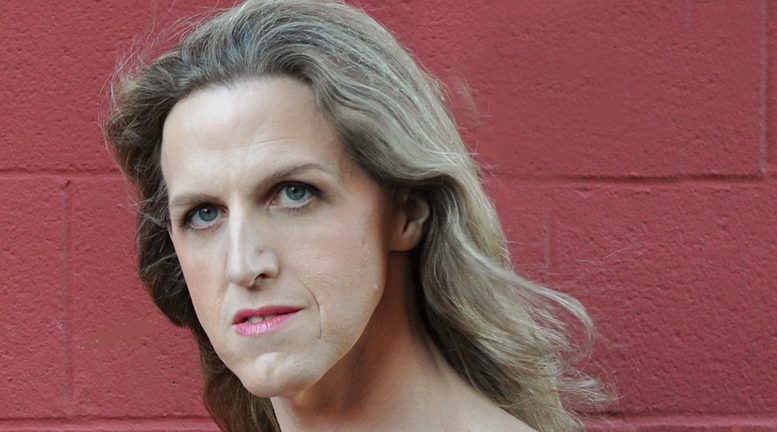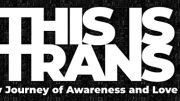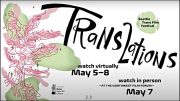By: Lorelei Erisis*/TRT Columnist—
If you consider yourself an ally to trans people, then please read this column. Don’t get me wrong, trans people themselves should probably read this too. But they will get something entirely different from what I have to say. Truly, most of what I’m about to tell you are things that our allies need to hear—at least they (you!) do, if they (you!) want to be better allies.
Last week I was trans-bashed and though it was awful in the moment, the repercussions of the event have been almost worse.
It had been an exceptionally trying night at work. When I’m not out marching and speaking or writing and telling stories, for the past several months, I’ve been a waitress at a restaurant in Central Square in Cambridge. It’s a great place to work and an incredibly accepting and “safe” environment. But for all that, sometimes being a waitress is just hard, for totally mundane reasons. This was one of those nights.
After we closed, I was nearly the last person out, only the dishwasher was left when I walked out the door. To vent some of the night’s frustration, I went next door to the neighborhood punk bar to have a beer and check my e-mail. It might help you to picture that what I wear to work is usually some variation on a short skirt, black top, and Doc Marten boots. It’s a pretty tough and punk rock version of your friendly neighborhood pageant queen Lorelei.
This punk bar has been there for years. I mention it mainly because it’s a single source of continuity between what Central Square used to be and what it has become now. Years ago, Central Square in Cambridge might have been thought of as “sketchy” by some. I used to spend a lot of time there myself in the early ‘90s hanging out at the legendary Goth club ManRay.
Now, after years of gentrification, most people I meet think of it as quite a “safe” neighborhood. A “safe” city in fact. And, in most respects, they might be right.
However, for trans people, my own experience has been that it’s often a topsy-turvy, upside-down world. But I’m getting ahead of myself.
Anyway, when I left the bar, it was a Wednesday, maybe nearing midnight, not a “dangerous” time of the week; I went across the street to go to my car, which was parked on the other side of a brightly-lit public lot, right off of Massachusetts Avenue. For all you non-Bostonians, just know it’s a pretty busy street and even at midnight on a Wednesday, there’s a lot of people around.
I park there nearly every day and have never had even a hint of trouble. In fact, I have so little reason to suspect trouble there, that I was actively looking at my phone, texting my girlboyfriend to say I was on my way home. I was also, as per the description of how I dress for work, cute, but not unintimidating looking.
As I was doing this, I heard a group of guys I was walking by start catcalling me. Any woman, trans or cis, can attest to how unsettling this can be in itself. To be perfectly honest, though, as a trans woman, I find it obnoxious, and detestable, but also strangely affirming of my gender. Usually, I simply tune it out and ignore it, which is what I did this time.
As I walked by I was pretty determinedly not paying them any attention or showing any reaction. I’ve lived in cities for most of my adult life, mostly in far more “dangerous” neighborhoods than Central Square in “The People’s Republic of Cambridge,” as it’s sometimes derisively/affectionately referred to. And I’m a lot more street-smart than a lot of people realize. I know, for instance, that for me to acknowledge or engage people like that on the street, in any way, generally it will only encourage them.
Unfortunately, once this group of men decided I was ignoring their attentions, they flipped fast. They went from lazily catcalling me, to angrily shouting things like, “That’s a tranny!” and “Hey tranny bitch!” and a torrent of related epithets and exclamations I will refrain from reprinting here.
Though I still very carefully showed absolutely zero reaction, my senses were on high alert. I didn’t change my pace at all, but kept walking directly to my car. Behind me, I could hear the group start to come after me. Thankfully, I don’t think they had gone full pack mentality, as I believe there was one voice holding them back slightly.
And this gave me the opportunity to make it to the relative safety of my car. Physically unhurt. In point of fact, it wasn’t even until really the next day that I had any real reaction whatsoever. Partly that was a result of having to hold myself together so carefully and deliberately.
The whole thing probably happened in less than two minutes; maybe shorter than that. Time slows down in the moment during encounters like this, as they equally tend to expand in the memory to fill a time frame that matches the intensity of the experience.
Okay, that’s what happened. Here’s why it’s important for allies to read this. I don’t talk too much about all the bad things that have happened to me as a trans person. Partly, this is because there are already a lot of voices out there doing that, people who talk about the negative aspects of our lives quite eloquently and powerfully. I have chosen to present a mostly positive voice. I want folks to know how awesome it is to be trans! I want to be an optimistic and encouraging voice for trans people. I believe that this is, in its own way, just as important as the scary and sad stories.
Also, I have been incredibly lucky. I’m tall and white, and binarily identified, and I have a really good support system. I won’t hesitate to acknowledge that I have a ton of privilege that a lot of other trans people don’t, especially trans women of color. Frankly, much of the daily discrimination and harassment I face as a trans woman is fairly “mundane.” It’s lingering stares, and bungled pronouns, awkward questions—the sort of discrimination that is only noticeable as cumulative and repeating trends; the same result happening over and over again, in patterns reliable enough as to make it statistically unlikely that they are unconnected.
More than anything, at least in the context of the work I do, most of it just doesn’t make a very good story. It’s not very dramatic. It’s my daily life and honestly, for me to even be healthy and happy I have had to learn to simply ignore much of it, let it slide over and off of me. It’s far too easy to become consumed by all the awfulness the world can throw at you as a trans person. So, as an emotional self-defense technique, if nothing else, I just don’t dwell on most of what I experience in my daily life.
Here’s where I get into the whole topsy-turvy world of trans people thing I mentioned earlier. The worst discrimination and harassment I have encountered, the incidents that stand out and make the sort of stories I’ve given speeches about, they have almost always happened in places most cis people think of as “safe.” Places like famously gay West Hollywood, CA, college town, Amherst, MA, and ultra-liberal Cambridge.
I’ve lived in a lot of “bad” neighborhoods and taken a lot of questionable chances in places I probably shouldn’t have. But it has consistently only been in places where my guard was down and I never saw trouble coming that it has come and punched me in the gut. Heck, I even lived for two years in the local headquarters of The Bloods (the famous gang, as in “The Crips and The … ”) in Holyoke, MA, and had no trouble from the locals, though I did face an inordinate and intolerable amount of harassment from the police.
One night, when I was coming home and pulled up in front of my dark and movie-scary building in my beat up old Saturn followed by a friend’s very redneck-looking truck, filled with furniture from my Nana’s apartment, the local gang members even showed up out of nowhere and surrounded the truck to ask if I was alright and needed help. When I thanked them and told them I was alright, it was just a friend helping me, they politely dispersed.
Yes, it was a dangerous neighborhood in many ways. I eventually moved when I saw a man get shot in front of my building in broad daylight. But as a trans woman, I never felt unsafe or targeted for who or what I was. If anything, I knew the violent reputation of the neighborhood was likely to keep away all those actually dangerous bigots who write about me online, and post pictures of me speaking and marching with captions saying things like “this is a man in a dress.”
And of course, when I was in this, and other, “bad” neighborhoods, I had my guard up. I was aware of my surroundings and careful in my movements. But it wasn’t really hard to do this. It is the obvious thing to do. Reflexive even.
Not so in so-called “safe” places. It’s harder to keep one’s guard up in a place where nobody expects any serious danger. In fact, because of the effort involved in reminding oneself to stay on guard, to do so is fundamentally exhausting and emotionally draining.
Nonetheless, these “safe” places are often the most dangerous. I myself become visibly nervous whenever I find myself in some “nice” suburb, or “quaint” town.
This is where the bad stuff happens. The stuff that can get a trans girl killed.
Our allies need to know this. The places you think of as “safe” are not necessarily safe for us. The privilege that protects you, tends to fail us when we most need it.
When I posted about this trans-bashing on social media, there was an immediate outpouring of support. I felt very lucky to be so cared for and well-thought of.
However, there were some troubling trends that became quickly clear. Trends I have seen elsewhere also. In addition to the expressions of support, there was a lot of conjecture about what I should have done, or how I should be protecting myself in the future. Everything from tirades about how unfortunate it is that I can’t carry a gun, because of politics, to suggestions of all manner of sprays and self-defense devices I could carry, or fighting techniques I should learn. There were also multiple suggestions that I should have called 911, or that I should after the fact report the incident to the police.
All of which pretty much ignores the fact that I’ve been living in this trans skin for a good number of years now. And for a white girl from Cape Cod, I’m pretty savvy and experienced in how to protect myself and stay safe. Heck, when I was getting ready to move out of that gang building in Holyoke, one of the other residents stopped me in the hall one day and told me that I didn’t have to worry, because, “You know how to act.”
I know for instance that my size is a double-edged sword. It protects me from a lot, but only to a certain degree. It makes people think twice and hesitate before giving me trouble. But it also makes me a lot more “readable” as trans. And more dangerously, it makes transphobes feel pretty threatened, which makes escalation my enemy.
I have learned from being this size for a number of decades now, living as a man and as a woman, that if I show even the slightest hostility, it can magnify the threat enough to quickly flip an already bad situation into physical violence. Insecure men and boys have been wanting to fight me because of my size my whole life. And though they are hesitant to actually throw the first punch, all they need is the slightest excuse, the smallest provocation to do so. This is a big reason why I have learned to be so friendly and affable. It’s my best defense.
If you ever wondered how I became so polite and funny and friendly, at least part of it came as a result of just trying not to get beaten up by the short kids who felt like they had something to prove by picking on the biggest kid in school. And though as I got older, the short kids got bigger, and the playground became the whole world, I was still the biggest target around. More so once I admitted I was a girl.
I’m a lot of words past my normal word count at this point, so I’m going to wrap this up and make my final points.
To the trans people reading this, simply know you are not alone. These terrible things that happen don’t just happen to you. It’s awful, and it should not be, but they happen to all of us. Even to the “strongest” among us, even to semi-famous, activist-adventurer, punk rock pageant queens.
To the allies reading this, who I have addressed from the beginning, please know that your sympathies are nice. Kind words are often a positive thing. But before you start giving out advice, even if it is with the most well-meaning intentions, know that you do not know. You do not know what it is to be us; to walk in this world in our skins.
You do not know, for instance, that in suggesting I call the police that your privilege is showing. You might still think the police are your friends that they truly are there to serve and protect you. And maybe they are. Not so much me. Hard experience has taught me that most encounters I have with the police as a trans woman, even when I have called them myself for help, consistently range from “not helpful, but not completely awful” as a best case, to “disastrous, arrested, and abused” as a worst case.
If you truly want be the ally you consider yourself to be. I suggest you work to dismantle the attitudes and systems that oppress us. Use the access your privilege gives you to change things from inside, from your vantage point higher up that ladder. Offer support and solace when we are hurt, but withhold your advice until, and unless, we ask.
Don’t presume to tell us what we should do in the future. Instead, the next time you see a trans person being harassed or oppressed or otherwise mistreated, consider how you might intervene. What can you do to defuse the situation or defend us in our moment of need?
And, know these things are most likely to happen in the places you least expect. The places you consider quite “safe.”
Slainte!
*Lorelei Erisis is an actor, activist, adventurer and pageant queen. Send your questions about trans issues, gender and sexuality to her at: askatranswoman@gmail.com.








Spectacular article. I felt as I was speaking my own life reading your words. Eloquently spoken.